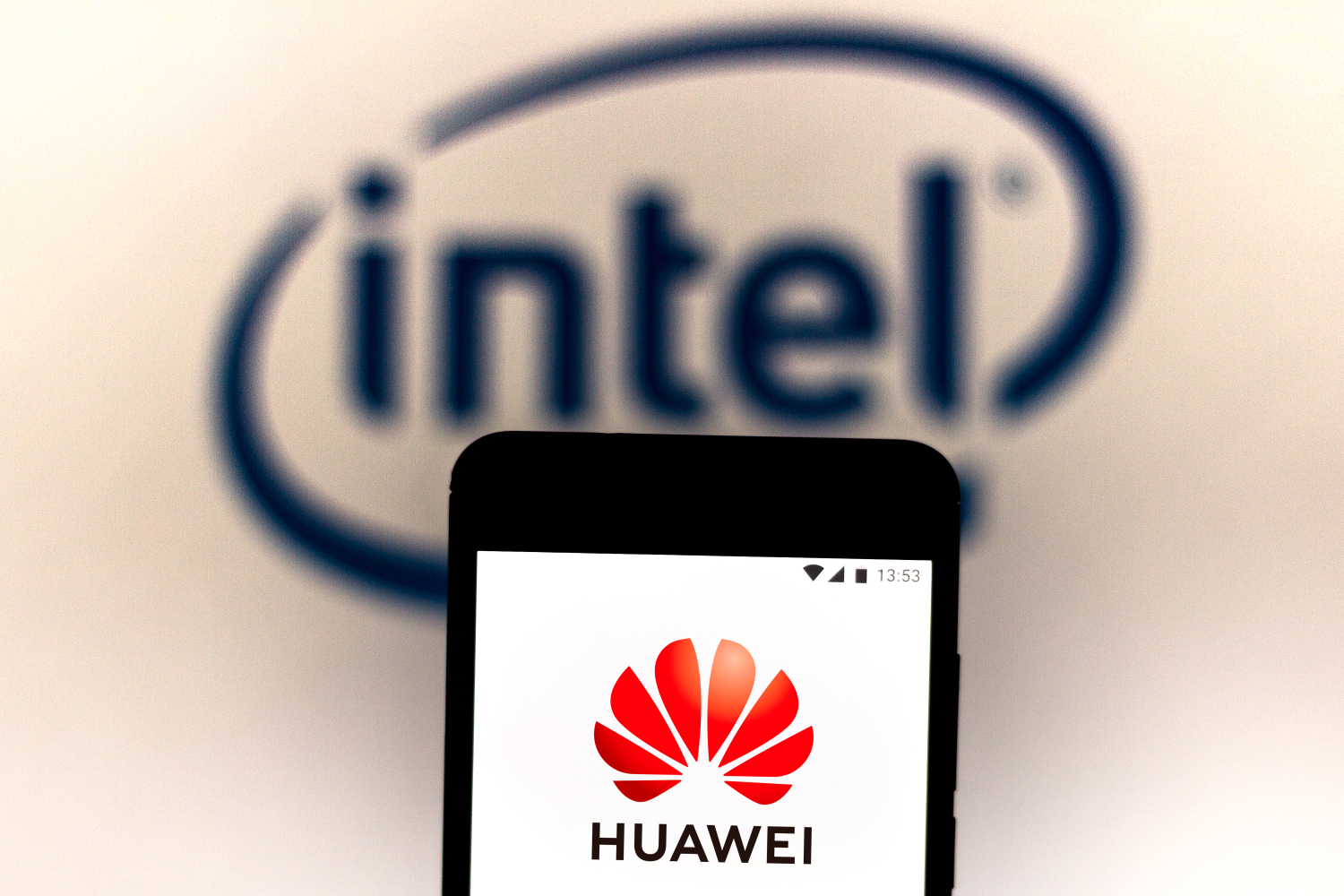Intel Applies for License to Supply Huawei
Intel hasn't made the clean break with Huawei that many people might have expected after the Chinese telecommunications company was blacklisted by the U.S. Department of Commerce in May. Earlier this week, CNBC reported that Intel has continued to sell products to Huawei throughout the second quarter of 2019 and has applied for licenses that would allow it to continue supplying those parts in the future, according to Intel CEO Robert Swan.
Huawei was purportedly blacklisted for posing a national security risk to the U.S. The ban's motivation was called into question, however, when U.S. President Donald Trump said in June that he would delay the blacklisting after China agreed to resume trade talks. It's not like Huawei's products would've posed less of a national security risk because of those talks, so it seemed like the company was merely being used as leverage against China.
The lack of clarity involving the Huawei ban led U.S. companies to lobby in the company's defense. Those companies argued that Huawei's consumer products didn't pose any national security threat; only its networking equipment did. That's why Intel resumed sales to Huawei, Swan told CNBC, after it determined which parts were "within the rules of the law." The company believes those parts won't be used in products threatening national security.
That's also why Intel wants to sell Huawei general compute chips. "For the most part, if you look at the lion’s share of what we ship into China generally, but into Huawei who’s a large customer of ours, it’s general purpose compute," Swan said. "So general purpose product that we ship to all other cloud service providers. So that general purpose compute, we don’t believe is what should be worrisome if the quest is to protect national security."
It wouldn't be a surprise to learn that other companies have also been selling products to Huawei despite publicly cutting ties with the company. Huawei is a massive company, and despite all its claims to the contrary, it needs U.S. parts to make its products.
Unfortunately, it could soon become even harder for U.S. companies to figure out what they are or aren't supposed to sell Huawei. Trump announced yesterday that his administration would expand U.S. tariffs on products imported from China to another $300 billion worth of goods on September 1. He seemed hopeful about the trade talks with China, though, which means there's basically no way to predict where things will be in a month.
Get Tom's Hardware's best news and in-depth reviews, straight to your inbox.

Nathaniel Mott is a freelance news and features writer for Tom's Hardware US, covering breaking news, security, and the silliest aspects of the tech industry.
-
elbert Wait the article says "national security threat; only its networking equipment did." Isn't this like arguing that Delorean's cars didn't violate US law only the cocaine did. How high legality speaking the one one product is becomes the issue not that the other things the company has is fine.Reply -
bit_user ReplyUnfortunately, it could soon become even harder for U.S. companies to figure out what they are or aren't supposed to sell Huawei. Trump announced yesterday that his administration would expand U.S. tariffs on products imported from China to another $300 billion worth of goods on September 1. He seemed hopeful about the trade talks with China, though, which means there's basically no way to predict where things will be in a month.
This is a non-sequitur - the tariffs go the other way, not affecting what US companies sell to China, much less Huawei in particular. Another wonderful article by Mr. Mott. -
jasonelmore Wow, first AMD, now Intel. Sure, Huawei will buy their chips for a few years, but they will also dissect and reverse engineer them to make their own, homegrown CPU's. The US government should stop subsidizing research for Intel and AMD. Intel is one of the biggest recipients of US grant money.Reply
https://www.washingtonpost.com/blogs/govbeat/wp/2015/03/17/the-united-states-of-subsidies-the-biggest-corporate-winners-in-each-state/?utm_term=.3f6e03ba0ced -
bit_user Reply
If you're worried about them literally dissecting the chips to reverse engineer them, they don't need many for that. And nobody instituted a blanket ban on CPU exports to China, so those guys could just walk over to their nearest computer store and buy some CPUs (or order them on Alibaba).jasonelmore said:Sure, Huawei will buy their chips for a few years, but they will also dissect and reverse engineer them to make their own, homegrown CPU's.
The real concern over IP should be any design and manufacturing that Intel does there.
I think this article does a disservice by lumping grants, tax credits, state subsidies, federal loans, loan guarantees and bailout assistance together. Grants are usually given to support research or to serve some other goal that the corporation competed for. And loans or loan guarantees don't necessarily cost the government anything, but help companies that might have poor credit and could only get them at a really high interest rate. So, those aren't necessarily subsidies, but certainly the loans and loan guarantees can cause the numbers to balloon, substantially.jasonelmore said:The US government should stop subsidizing research for Intel and AMD. Intel is one of the biggest recipients of US grant money.
https://www.washingtonpost.com/blogs/govbeat/wp/2015/03/17/the-united-states-of-subsidies-the-biggest-corporate-winners-in-each-state/?utm_term=.3f6e03ba0ced
Anyway, if you wanted to avoid companies' IP leaking into China, then you're a couple decades too late. The US government should've passed laws preventing companies from participating in any technology transfer, with China. And before the transfer happened. That's mostly water under the bridge, by this point.
